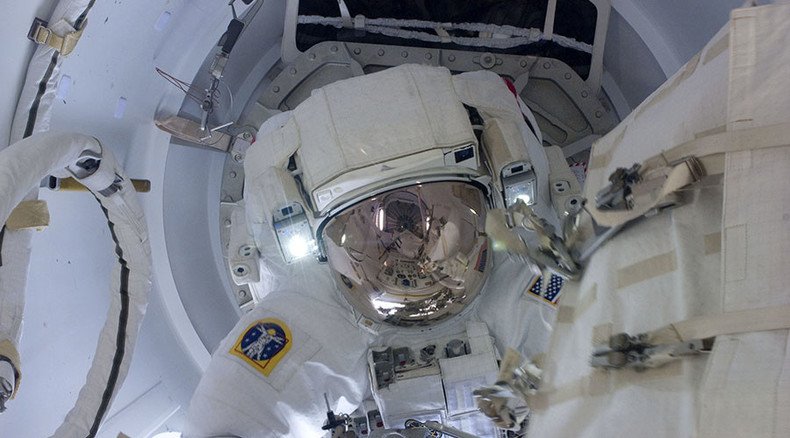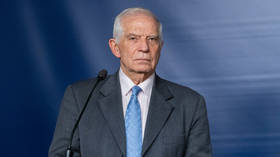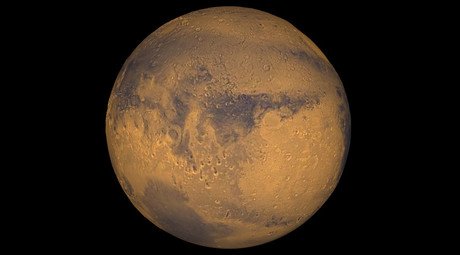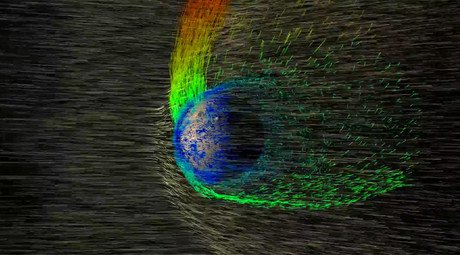Health hazards remain obstacle to human travel to Mars - NASA report

Major health risks must be addressed before humans can successfully travel to Mars, according to an new audit conducted by NASA. The US space agency says it is optimistic about resolving those issues by the 2030s.
NASA must focus on addressing major health hazards for humans to make the three-year, round-trip trek to Mars, according to an audit – NASA's Efforts to Manage Health and Human Performance Risks for Space Exploration – led by Paul Martin, NASA's inspector general.
Among the health concerns were damage to the central nervous system, radiation that could lead to cancer, infertility, cataracts, extensive terms of isolation, and prolonged weightlessness, which has been shown to weaken bones and muscles. The audit also found that a Mars trip poses challenges concerning food and medical supplies.
Help wanted: NASA looking for astronauts as future space missions loom
https://t.co/svQYh4nUjWpic.twitter.com/0rs3KcQMsY
— RT (@RT_com) November 5, 2015In the audit, Martin said NASA is making progress in addressing these and other Mars-related risks, all as the space agency is involved in its first yearlong mission at the International Space Station. A trip to Mars is a goal that is possible to achieve by the 2030s, NASA maintains.
“The agency still faces significant challenges to ensuring the safety of crew members on a human mission to Mars or deep space,” the 54-page report found.
Astronauts must understand that initial trips to Mars may come with risks that will not threaten crews in subsequent years, Martin wrote in the report.
NASA's ongoing assessments of basic health risks is coupled with efforts to advance vehicular and other technologies that will allow a deep-space mission to the Red Planet and to maintain a presence there, the report acknowledged.
Fancy a trip to Mars? @NASA is officially accepting applications: https://t.co/C8MNz4URK1pic.twitter.com/Fdgbc8OeeG
— Travel + Leisure (@TravelLeisure) November 9, 2015Expert coordination on these health concerns also needs to improve, the report said.
NASA supported the report's findings, according to the Associated Press.
No American has spent more than seven months in space at once. No human has experienced a spaceflight longer than 14 months, a 21-year-old record held by Russian cosmonaut Valeri Polyakov.
Hey look, it’s Earth! #NASA unveils website posting daily images of our blue marble #spacehttps://t.co/uRpr9vlWfupic.twitter.com/3nbzURYLv0
— RT America (@RT_America) October 20, 2015NASA astronaut Scott Kelly holds the record for the longest spaceflight by an American, which Kelly achieved last month. His mission at the International Space Station is part of the long-term effort to study the effects of space on humans.
“I’m pretty sure I’m going to get through it without much of an issue," Kelly said of his mission, according to the AP. He is set to return to Earth in March.
His twin brother Mark Kelly, a former astronaut, is coordinating with NASA in efforts to study the health effects of space experienced by Scott.
Last week, NASA launched a new recruiting effort to lure future space travelers and researchers to the agency. NASA Administrator Charles Bolden said the agency is looking for “a new generation of space pioneers.”
The number of astronauts at NASA’s disposal has dropped considerably since its space shuttle program began winding down – from about 150 active astronauts in the early 2000s to just 47 today, according to NASA. More will be necessary for future spaceflights.
“This next group of American space explorers will inspire the Mars generation to reach for new heights, and help us realize the goal of putting boot prints on the Red Planet,” Bolden said.














